“My face was in the floor. I was crying and crying. I thought it would never end.” A friend told me of her divorce experience five years ago. “There was no place in the world I’d rather be than with him, to just hug him one more time,” said another friend who lost her husband a year ago. “There is no one I can really talk to” said a friend with anticipatory grief who is suffering with his wife, watching her die. I cry, too, for my father I suddenly lost too young, one of my best friends in all the world.
Grief changed me. It was and is surprisingly physical. My whole body cries and mourns in waves of sour, sweet memory. Foster children and even adopted children mourn losses they don’t understand, sometimes from experiences they don’t even remember. But our body does. It is a physical, changing force. We are never the same.
Feeling Alone
Perhaps one of the most isolating things about grief is that it is so overwhelming, so encompassing that it is very difficult to describe, and even if we could, who can bear to listen to such agony of another without descending into an empathetic agony themselves? We wouldn’t wish this pain on anyone. It is very difficult to share.

You are not alone.
Grief is a reaction against loss. We feel so powerless. We couldn’t stop it. We can’t turn back time. I felt so angry that he left me, and so angry at myself for feeling angry. I know he didn’t leave me on purpose. I know he didn’t choose to die. But anger is one way we fight–fight the unbearable reality of the thought of life moving on without. Without. Without…
Left alone.
Not Alone
It isn’t uniquely human to mourn. Behind our back yard, there was a pasture for two horses. We used to feed them through the fence. One day I heard a horrible noise. I looked out and one of the horses was in the far corner of the field trying to push through and crying out in the strangest, alarming noise I’d ever heard. I could not understand it and was very worried. My dad pointed out just beyond the fence, and I saw the owner riding the other horse just beyond where the crying horse was. It could not stand being separated. Clearly separation was agony even for an animal.
Yet, it is incredibly human to mourn. Grieving belongs to the living. To hear the stories of people’s lives just a few generations ago is to see a people acquainted with grief. Diseases shut down whole cities at once. I have an ancestor who was a gardener and florist. There was one year they had no Christmas celebration at all because they were so busy making funeral arrangements. Thomas Jefferson, away from his family while working on the Declaration of Independence, returned home to find out that some of them had died while he was away. Surely they realized how precious life is. Our healthcare is so good we might cling to a false sense of security. But life is and always will be a tenuous, miraculous thing–so precious because it ends.
Through
Although it is courageous and amazing that we dare to love others, in another way, we don’t have much choice. To refuse to attach to or love anyone is not normal and harmful to try. To love is to live. So we really can’t avoid grief. It will affect us all. In this way, we have no other choice but to experience it eventually. We must and do go through.
It is frightening. We feel we must go through it alone, and in some ways that is true. Grieving is deeply personal. It makes us face our greatest fears. It threatens our foundational feelings of security, and we are so emotionally overwhelmed, we fear it has no end to its depth, magnitude, or duration. The intensity of grief is not measureable.
Yet, in spite of it all, we must and do go through. We make it through. And, there is an end to the intensity even if there is no end to the painful reality. We stumble and fall through grief because that is the only way, but there are choices.
Choose to let it move through you

Let it flow you, like the wind.
Sitting on a metal chair outside our library waiting for it to open, the strong breeze blasted my hair across my face in gusts. I kept pushing it aside. The wind would throw it back. I noticed that the chairs were unmoved. Even though they were light, they didn’t tip over with the wind. The chairs were like graph paper, a grid of open squares. I could sit on it, but the wind could not push it over.
I wondered if I could let my sadness just go through me like that. If, by letting it through, I might actually be stronger and not feel so devastatingly pushed over by every gust. I felt like the image helped me. I tried to let the emotion run through. Visualizing my sadness as a gust of wind that would end and letting myself cry without so much fear was comforting, and the episode would end. One friend I hugged through a cry said, “I think I’m done now.” She and I both know she isn’t done. It will come again. But, this “gust” was over, and she let it safely move through.
Choose to let it move you
“What have you learned?” I ask myself periodically, especially in hard times. As a young college student I survived a fellow classmate who died in a car wreck. I didn’t know her well, but I did know that she would never graduate, never get that job, never get married, never have kids. She was there one day and gone the next. I mourned for all her “nevers.” I concluded that the best thing I could do was appreciate my life more–graduate because I could and in all ways live well–the only thing I could do to honor her life.
When my Dad died just before retirement age, I realized that I may never have a retirement. I always expected to leave a legacy. I expected to write all that I have collected and learned. But, I didn’t make time for it. Losing my dad reminded me that there may not be a later. And, I realized that not only can I fit in what is the most important to me, I must. We must.
Many people feel relief through productive or creative outlets. This is another way to let grief move through us that is actually beneficial to yourself and others. In many ways, participating in this blog has been how I chose to turn my pain into something I hope will benefit others. It changes the direction of all that negative energy and focuses it into something helpful or moving for others. To live is to love.

You have an important place in the world. God will show it to you.
“You have a work that no other can do” –Children’s Songbook #158
Each of us is unique. There is literally something you can do that no other can. That is to be you! We can lose our skills or our abilities, but we will never cease to be unique. In this way, every single loss is a loss for us all. We are not replaceable. The world will never be the same.
This is our moment of potential and power. We just don’t know how long that moment will last. We must be our best selves now. We must act with intention and leave a legacy now. Impact can and does continue when we are gone. But no one notices a potential impact that never happened. It is an omission we can’t miss. Perhaps that is the greatest loss of all.
“Important but not indispensable” –Tony Dungy
Tony Dungy, in his book The Mentor Leader, points out that we are all “important, but not indispensable.” The world can and will go on without us some day. Be he also shares a moment in his life when someone, his vice principal in middle school, saw him making a big mistake and took the time to intervene and care about him. It changed his life, it gave him his career, and it set him on the path of making a positive difference for others. That same vice principal that I would probably never meet, has now affected me.
You are important.
“You have a work that no other can do.”
We simply can not judge the ultimate ripple effect of our actions through time and on others.
Let’s fall through our grief together,
And make a really, really big splash!
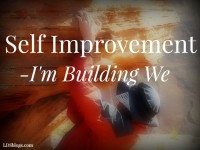
Self Improvement- To read more of DarEll’s articles, click here.
May your grief be the catalyst for new and wonderful expressions of your unique self.
Don’t hold back.
We are waiting.
Namaste,
DarEll S. Hoskisson
About DarEll Hoskisson
DarEll S. Hoskisson loves to do hard things, but not too hard. She shares her own challenges, goals and experiences as she guides you into a realistic path of self-reflection and self-improvement. She shares tips on how to find, know and trust yourself so you can decide if other’s suggestions are right for you.
DarEll has the world a little upside down—where work is play and play is work. She actually thinks other people’s problems are fun to try to solve and lights up with a personal challenge. She loves people, harmony, and excellence. She also loves useful things like tools and ideas that make work faster, easier and more fun.
DarEll married in 1993 and graduated from BYU (1995) with a bachelor’s degree in English and Secondary Education. Since then she was adopted by 5 children and has worked with many non-profits. She is currently a certified personal trainer and group fitness instructor—leading pilates and yoga at her local YMCA.
DarEll lives in Florida where she enjoys her family, nature, her work, and encouraging people to live well.
She periodically posts her poems, what she is learning, and service opportunities on her personal blogs:
https://personalabridgements.wordpress.com and https://darellhoskisson.wordpress.com
Twitter •

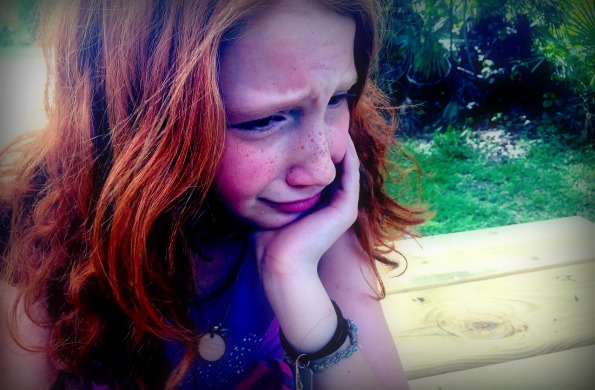
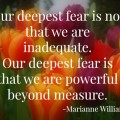
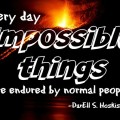
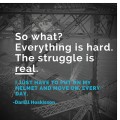
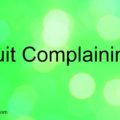

You are spot on in this post, Dar Ell. Whether it’s death or divorce, everyone has to grieve and it is physically painful. Thanks for writing this.
It was a blessing to me. It still is. I just looked up this blog to share again with a grieving friend. It is hard to know what to say when you know that nothing fixes it. There is no other way but through. I am glad if you found it a blessing to you.
When I saw your title I thought , wow, grief?! I sat here and read through…I rec’d a wave or waves of hope healing and heaven…meaning it all makes sense and with my dad’s passing just one month ago, how appropriate! Thank you so much DarEll for expressing the beautiful passageway into the next chapter! I feel special knowing that you happen to write this at this point in time. Another way the Lord uses you to bless others with your amazing gift!
Thank you Maria. How are you doing now? I’m so glad it found you at the right time.
This is beautifully said. I shed some tears again as I thought of our shared, yet individual grief. I love the visual of working to let it “pass through” and of making now count, because we do not know if there will be a tomorrow. I am glad we are on this journey together!
Thank you for your comments. It is easy to feel that my writing flies out into oblivion. It makes such a difference to know it had an impact. I love you.